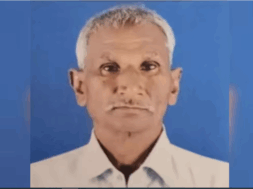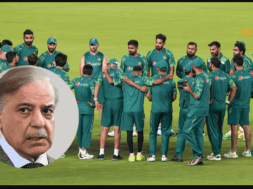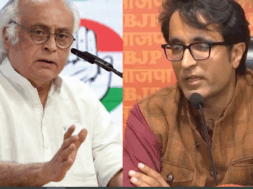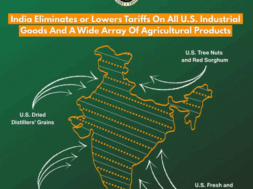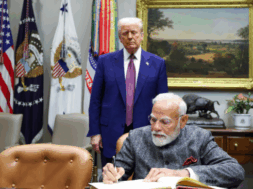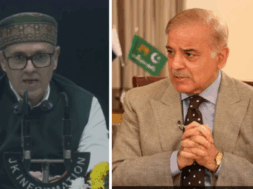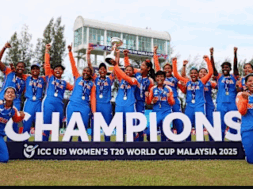
India’s Tightrope Walking on Ukraine
Manas Dasgupta
NEW DELHI, Feb 25: India will have to walk a tightrope on the diplomatic front with both Russia and the United States, the arch rivals and now enemies over Russian invasion in Ukraine, expecting India’s whole-hearted support on their conflicting stands on the issue.
Russia on Friday said it expected support from India at the UN Security Council when the global body take up a crucial resolution on the Russian military operation in Ukraine, while the US said it expected all the countries including India who believed in “rules-based international order“ to condemn Russia’s “blatantly illegal violation of Ukraine’s sovereignty and territorial integrity.”
India so far has adopted a neutral position between the two world powers on the Ukraine issue and has advocated peace. The prime minister Narendra Modi, who spoke to the Russian president Vladimir Putin on Thursday and appealed for ending violence and called for concerted efforts from all sides to return to the path of diplomatic dialogue. A Russian readout said Putin outlined the fundamental assessments of Ukraine’s “aggressive actions” against the civilian population of Donbas as well as the many years of “destructive policy” aimed at breaking the Minsk agreements.
India’s external affairs minister S Jaishankar too held a phone conversation with his Russian counterpart Sergey Lavrov and underlined that dialogue and diplomacy were the best way forward to deal with the crisis. Russia so far had appreciated India’s neural stand which, however, was condemned by Ukraine which wanted India’s direct intervention giving “the special relationship between India and Russia.”
Russia’s Charge d’affaires Roman Babushkin said India had a deep understanding of the reasons that led to the current situation in Ukraine and Moscow was looking for continued support from New Delhi in sync with the special and privileged strategic partnership between the two countries. The UN Security Council is scheduled to vote late on Friday evening on a draft resolution on Russia’s military operation in Ukraine as well as the escalating situation in the eastern European country.
“We highly appreciate India’s deep understanding of the current situation as well as the reasons that led to it. We expect India to support Russia at the UN Security Council,” Babushkin said. The draft resolution is set to condemn in the strongest terms Russia’s military operation in Ukraine that has triggered strong outrage among the Western powers.
Appreciating India’s position, the Russian diplomat also referred to External Affairs Minister S Jaishankar’s comments three days back in Paris that the situation in Ukraine has its roots in the post-Soviet politics and the expansion of the North Atlantic Treaty Organization (NATO). “India’s position has been very balanced and independent. We appreciate it and we continue to expect India’s support in sync with the special and privileged strategic partnership between the two countries,” Babushkin said.
When asked at a media briefing on Thursday about India’s position on the draft UN Security Council resolution on the Ukraine crisis, Foreign Secretary Harsh Vardhan Shringla had said India had seen it and that New Delhi’s stand would depend on the final shape of its text. “I am told that it would undergo considerable changes. We will wait to see the shape that the resolution takes before we can pronounce ourselves and the position that we will take on the issue,” the foreign secretary said.
The Russian Charge d’affaires said Russia had been in constant touch with India over the latest developments relating to Ukraine. “We are maintaining all communication with India and it has a proper understanding of the overall situation,” he said. Babushkin said the Western powers and the current Ukrainian government were responsible for the Russian action against Ukraine as they never heeded to Russia’s security concerns as well as legitimate interests of the people of Donetsk People’s Republic (DPR) and the Luhansk People’s Republic (LNR) in Ukraine.
In Washington, the US expressed a similar expectation from India for an outright condemnation of the “Russian aggression.” Since India has so far chosen not to take sides publicly, US President Joe Biden said the US and India were “in consultations” but admitted that the differences had not been as yet resolved completely. Secretary of state Antony J Blinken spoke to Jaishankar and pressed for the need for a “collective response” against what he termed as a violation of the “rules-based international order.”
In response to questions by the media, a US state department spokesman had said Russia’s invasion should be “of deep concern” to all countries that believe in a “rules-based order”; the US was speaking to its allies and partners in the Indo-Pacific about economic sanctions and export controls vis-à-vis Russia; there had been no decision on waiver related to the Countering America’s Adversaries through Sanctions Act (CAATSA) vis-à-vis India; and reiterated that the US would stay committed to the Indo-Pacific region.
On Thursday, responding to a question on whether India was in sync with the US position on Ukraine, Biden had said, “We are in consultations with India today. We haven’t resolved that completely.” He made the remark at his press conference to outline the US’s response to Russia’s move where he had warned Russia that Putin’s “misadventure” into Ukraine would cost Russia dearly. “We will make sure of that. Putin will be a pariah on the international stage. Any nation that countenances Russia’s naked aggression against Ukraine will be stained by association.”
A little later, EAM Jaishankar first tweeted that he appreciated receiving a call from Blinken, where they discussed the ongoing developments in Ukraine and its implications. Blinken, who held a series of conversations with counterparts from allies and partner countries, then tweeted that he had spoken to the Indian foreign minister about the importance of a “strong collective response” to Russian aggression. “Russia’s attack on Ukraine’s sovereignty and territorial integrity is a clear violation of the rules-based international order.”
In bilateral statements, as well as their consultations as a part of Quad, both India and the US have emphasised the need to preserve the “rules-based international order.” While Delhi has been keen to distinguish between the situation in Indo-Pacific and the one that is currently playing out in the Europe, the West has sought to frame the two as a matter of common principles. The emphasis on “collective response” is being read in the context of ongoing discussions between the US and India at the United Nations Security Council over a resolution condemning Russian actions.
When asked how the US viewed India’s position on Ukraine, including Delhi’s refusal to criticise Russia and emphasis on diplomacy and de-escalation, a state department spokesperson said, “We too are urging Russia to choose the path of diplomacy and de-escalation. But there can be no doubt that the invasion is, as the UNSG (United Nations Secretary-General) put it, ‘a violation of the territorial integrity and sovereignty of Ukraine’ that ‘conflicts directly with the principles of the charters of the United Nations’.”
On whether the US was willing to give India space to continue its non-confrontational diplomatic stance vis a vis Russia, especially given the India-Russia defence relationship that assumed importance in the wake of Chinese aggression, the spokesperson said, “Russia’s invasion is a blatantly illegal violation of Ukraine’s sovereignty and territorial integrity. It should be of concern to all countries who believe, as we do, in a rules-based international order.”
In response to a question on how the current situation affected the possibility of an executive waiver for India for its acquisition of the S-400 missile systems, the spokesperson said, “We have not yet made a determination under CAATSA with respect to this transaction. We continue to urge all countries, including India, to avoid major new transactions for Russian weapons systems.”
Asked about the US’s expectations from its partners in the Indo-Pacific region, particularly India, the spokesperson said, “The United States is consulting very closely with all of our global allies and partners, including those in the Indo-Pacific, on the consequences of Russian military incursions in Ukraine, including severe economic sanctions and export controls.”
At a time when there are apprehensions that the situation in Europe would distract the US from its commitment to the Indo-Pacific, when asked how this would affect US investment of resources in the region with regard to the competition from China, the spokesperson said, “The US is strongly committed to its partnerships in the Indo-Pacific region and our efforts to uphold a free, open, prosperous Indo-Pacific region, as outlined in the administration’s Indo-Pacific strategy.”
While the difference in the US and Indian positions on Russia have been quite obvious, both sides have been restrained in airing it in public so far. In recent weeks a US state department spokesperson had said the relationship with India stands on its own merits, but Donald Lu, the US Assistant Secretary of State for South and Central Asia, while acknowledging that the US and India have had an “open and honest” conversation on Ukraine, has said it was a complex issue for both countries.
Russia’s outright invasion has complicated the situation but a senior official expressed the confidence that the issue could be resolved amicably. “Look, there are differences. But both countries have a way to manage those differences. At the highest levels, these differences are being discussed in a respectful manner, in public and private. We will find a way around this.”

